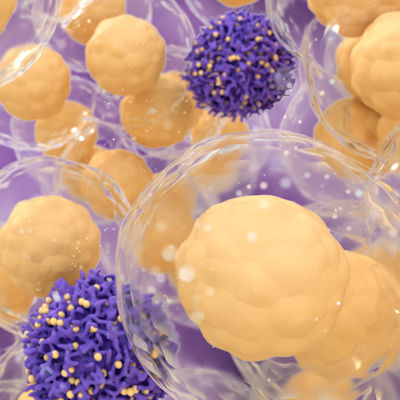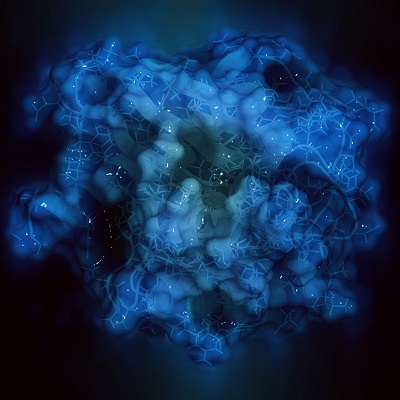August 29, 2022 -- Researchers led by LSU Health New Orleans have come up with a novel therapeutic strategy to overcome tumor-induced immunosuppression. The research team contends that for the first time, using proteomics, they’ve identified a critical immunosuppressive pathway and a promising approach to intervene, protecting the ability of T cells to attack cancer cells.
Results of their mice study, published on August 26 in Frontiers in Immunology, show that blocking a key enzyme boosts anticancer T-cell responses and resistance to immunosuppression.
CD8 T cells, immune system cells that kill cancer cells, need a protein made by the NOTCH1 gene to be effective -- an enzyme called casitas B-lineage lymphoma b (CBL-B). Citing previous studies, the researchers note that mice lacking CBL-B reject tumors because of increased T cell and natural killer (NK) cell immune responses.
"Genetic knockout and pharmacological inhibition of CBL-B prevents NOTCH1 degradation in response to adenosine and reactivates its signaling. Reactivation of NOTCH1 results in enhanced CD8+ T-cell effector functions, anticancer response, and resistance to immunosuppression. Our work provides evidence that targeting the CBL-B-NOTCH1 axis is a novel promising strategy for cancer immunotherapy.
The researchers collaborated with a Massachusetts biotech firm that is developing CBL-B inhibitors and were able to demonstrate that their experimental inhibitors protect NOTCH1 from breaking down in CD8 T cells and make them far more effective in killing breast and colorectal cancer cells.
"When added to existing immunotherapeutics, these CBL-B inhibitors greatly increased their potency," senior author Dr. Lucio Miele, PhD, assistant dean for translational research at LSU Health New Orleans School of Medicine, said in a statement. "This new strategy could expand the efficacy of cancer immunotherapy by making patients' T cells able to evade the immune-suppressive defenses of tumors."
While the researchers provided evidence illustrating that combination of CBL-B inhibition and immune-checkpoint inhibition has enhanced efficacy, they acknowledge that future research will need to determine the significance of this pathway in the tumor microenvironment as well as under physiological conditions and its potential applications for cancer immunotherapy.
"The pharmacokinetic and bioavailability of CBL-B inhibitors is currently under investigation and future work will focus on evaluating the compounds' antitumor activity in vivo in preclinical models and their potential clinical development," the study's authors conclude.
Copyright © 2022 scienceboard.net






